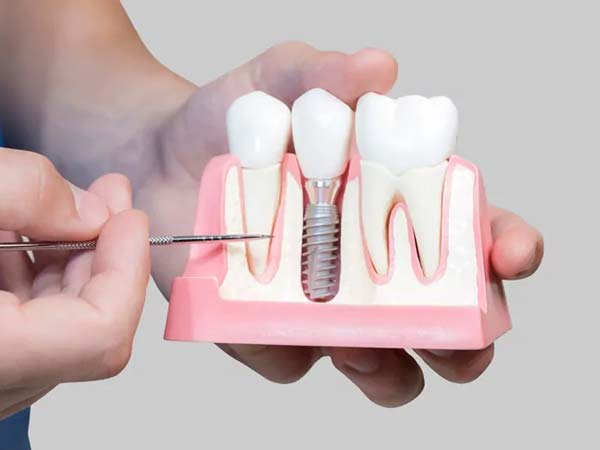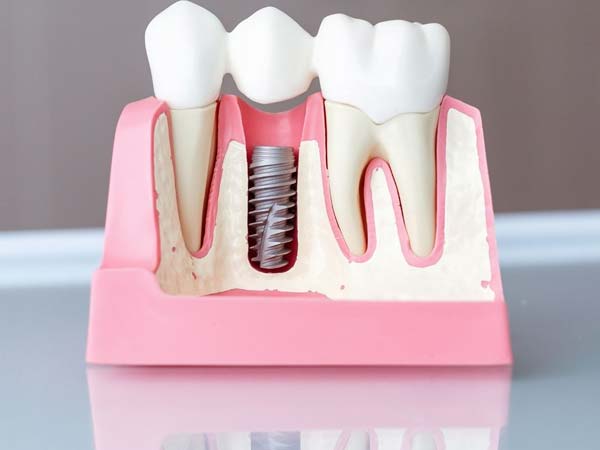
Root Canal Treatment: Saving Your Natural Tooth
Root canal treatment, also known as endodontic treatment, is a dental procedure performed to treat an infected or damaged tooth pulp. Contrary to common misconceptions, root canal treatment is not a painful procedure but rather a solution to relieve tooth pain and save your natural tooth. Let’s delve into the details of root canal treatment and understand its significance in preserving your oral health.
Understanding Root Canal Treatment:
- When is Root Canal Treatment Needed? Root canal treatment becomes necessary when the pulp inside your tooth becomes infected or inflamed. This can occur due to deep decay, tooth trauma, cracks, repeated dental procedures, or gum disease. Signs that you may need root canal treatment include persistent toothache, sensitivity to hot or cold, swelling, and tenderness in the surrounding gums.
- The Procedure: Root canal treatment involves removing the infected or damaged pulp from the tooth’s interior. The tooth is then cleaned, disinfected, and sealed to prevent further infection. In some cases, a dental crown is placed over the treated tooth to restore its strength and functionality.
- Preserving Your Natural Tooth: Root canal treatment aims to save your natural tooth, which is always the best option when possible. Retaining your natural tooth helps maintain proper chewing function, prevents neighboring teeth from shifting, and preserves the natural aesthetics of your smile.
- Pain-Free Procedure: Contrary to popular belief, modern root canal treatment is virtually painless. With the use of local anesthesia, you will experience minimal discomfort during the procedure. In fact, root canal treatment alleviates the severe toothache caused by the infected pulp, providing relief once the treatment is completed.
- Long-Term Success: When performed by a skilled dentist or endodontist, root canal treatment has a high success rate. With proper care, including good oral hygiene practices and regular dental check-ups, the treated tooth can last a lifetime.
The Process of Root Canal Treatment:
- Diagnosis: Your dentist will perform a thorough examination, including X-rays, to determine the extent of the infection and assess the condition of the tooth’s root canal.
- Anesthesia: Local anesthesia is administered to ensure a painless procedure. Your dentist will ensure your comfort throughout the treatment.
- Access and Cleaning: An access hole is created in the tooth, allowing the dentist to remove the infected pulp. The canals are carefully cleaned, shaped, and disinfected to remove any bacteria or debris.
- Filling and Sealing: The canals are filled with a biocompatible material called gutta-percha, which seals the space and prevents reinfection. In some cases, a temporary filling may be placed until the tooth is fully restored.
- Restoration: To restore the tooth’s functionality and protect it from further damage, a dental crown or filling is placed. This provides strength and support to the treated tooth.
Caring for a Treated Tooth:
After root canal treatment, it’s essential to maintain good oral hygiene practices to ensure the long-term success of the treated tooth:
- Brush your teeth at least twice a day with a fluoride toothpaste.
- Floss daily to remove plaque and food particles from between the teeth.
- Visit your dentist regularly for check-ups and professional cleanings.
- Avoid biting or chewing on hard foods or objects that may damage the restored tooth.
By following these guidelines and maintaining regular dental care, you can preserve the health and function of your treated tooth for years to come.
FAQs (Frequently Asked Questions)
- Is root canal treatment painful? No, root canal treatment is not painful. With the use of local anesthesia, the procedure is virtually painless. You may experience some mild discomfort after the treatment, but this can be managed with over-the-counter pain relievers.
- Are there alternatives to root canal treatment? The main alternative to root canal treatment is tooth extraction. However, it is generally recommended to save the natural tooth whenever possible, as extraction may lead to other dental issues and require additional treatments like dental implants or bridges.
- How long does a root canal treatment take? The duration of root canal treatment depends on the complexity of the case. Simple cases may be completed in one visit, while more complex cases may require multiple visits. Your dentist will provide an estimated timeline based on your specific situation.
- Can a tooth that has undergone root canal treatment get reinfected? In rare cases, a treated tooth can get reinfected. This can occur if the sealing of the canals is compromised or if new infection reaches the treated tooth. Regular dental check-ups and maintaining good oral hygiene practices can help prevent reinfection.
- How much does root canal treatment cost? The cost of root canal treatment can vary depending on various factors, including the tooth’s location, complexity of the case, and additional procedures required. It’s best to consult with your dentist, who can provide a detailed cost estimate based on your specific needs.



























